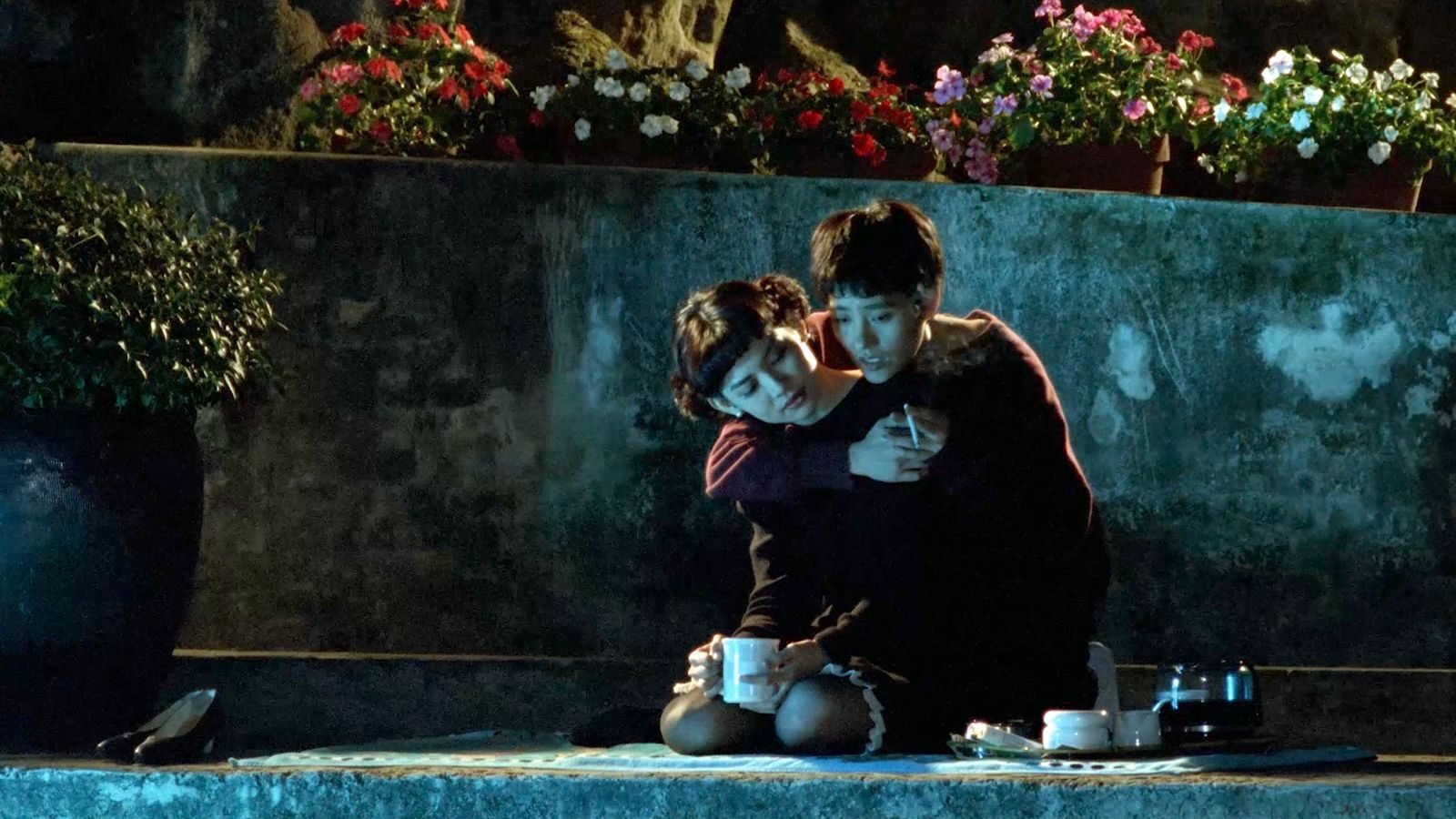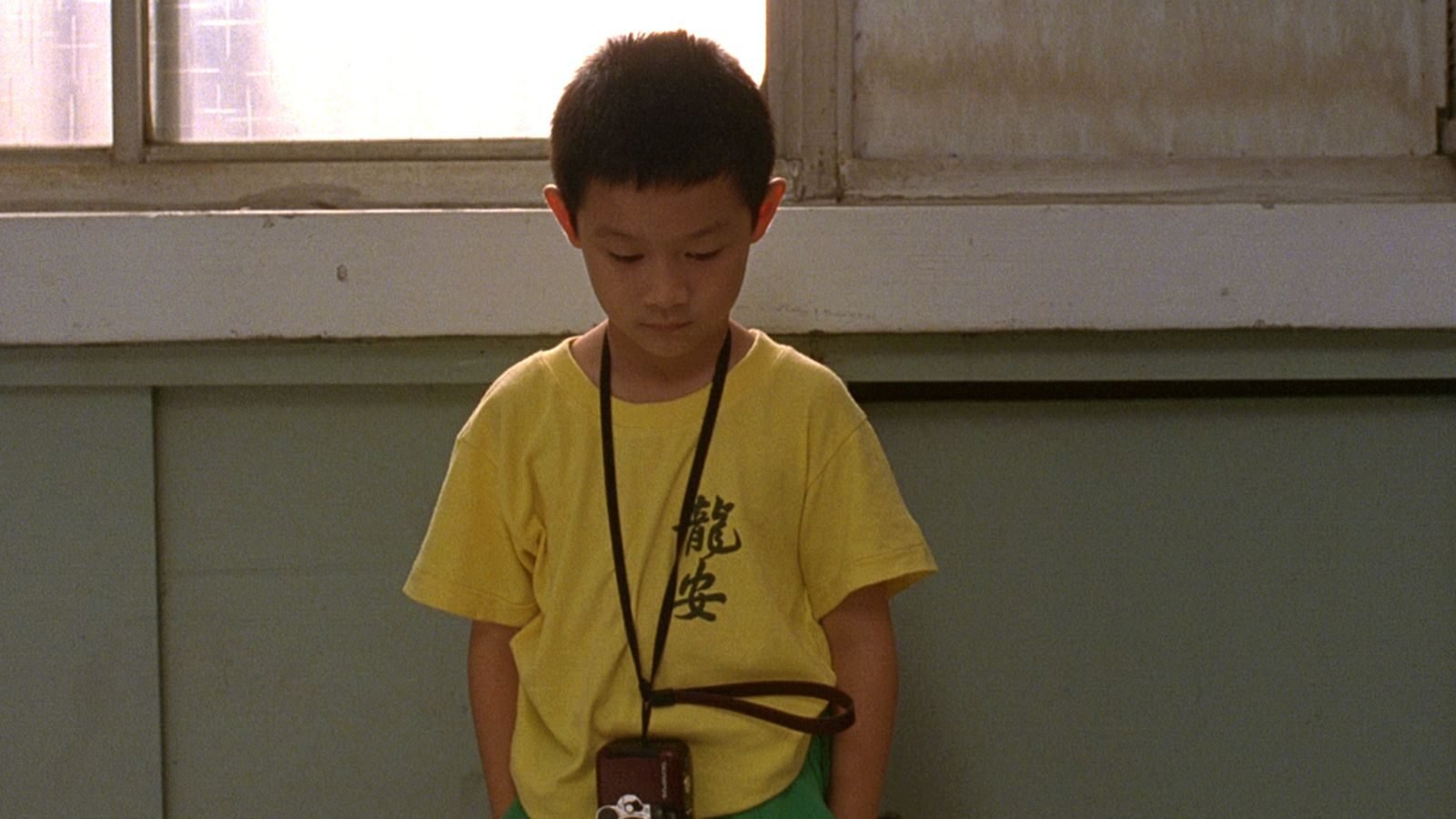The Films of Edward Yang
Film at Lincoln Center just put on an exciting program of rare films that you won’t want to miss.
More specifically, FLC’s latest retrospective: “Desire/Expectations: The Film of Edward Yang.” This program, which plays now through April 25th, 2024, is dedicated to the legendary Taiwanese New Wave filmmaker Edward Yang (1947-2007) and his heart-stirring, laugh-out-loud collages of urban middle-class life.
Don’t know Yang or his films? Prepare to be surprised by some of the most familiar characters you’ve never seen. Yang may not be on your radar, but here’s why he should be: from the early 1980s to the year 2000, his work has inspired generations of artists by turning cultural portraits of post-war Taiwan into universal life lessons. Sprawling casts of realistic, relatable and often hilarious characters—affectionately but acutely observed—offer compelling time capsules of our human condition. Even now, decades later, his films feel urgently relevant.
Here’s a link to the full FLC program. You’ll find Yang’s most popular dramas, including the family ensemble Yi Yi and gangland coming-of-age epic A Brighter Summer Day. Other hits not included in this round of programming—but also to be treasured—include character study Taipei Story and Yang’s lesser-seen, farcical gems, such as office-satire A Confucian Confusion and screwball gangster comedy Mahjong.
Note to reader: this is not another case of esoteric, double-black diamond art-house programming. Instead, it’s a call-to-adventure: even if you can’t make it to one of these holiday screenings, put Yang on your bucket list. You may, like me, know next to nothing about Taipei urbanites at the turn of the century, but watching Yang’s films makes these characters feel like family. Family you have to hang out with for only two hours (you’ll probably savor their impact far longer than expected).
But first, a quick introduction to Yang.
EDWARD YANG
Born in Shanghai in 1947 and raised in Taipei, Taiwan, Yang came to filmmaking via a series of detours. In 1949, when the anti-communist leaders of China’s Nationalist government were exiled to Taiwan, his family followed; in the 1950s and 60s, exposure to Western culture helped shape his tastes. After watching films by Antonioni, Bresson and Fellini, he dreamed of becoming a filmmaker, but his family objected: in their world, pressure to achieve was a given—and he was a dutiful son. Instead of art, he chose engineering.
At age 53, he looked back with a mix of humor and regret—a take on life that is palpable in most of his films.
“On college-entrance exams I did too well,” he admitted. “I qualified for the higher echelon in education, which led me into engineering, and I felt terrible. I wanted to retake the exam and do worse. But reality takes you in another direction.”
Yang was also stopped short by self-doubt. “After I got my master’s degree in engineering, my advisor said, 'OK, now on to your Ph.D.' I said I was going into films, and he said, 'You're crazy.' So I enrolled in film school at USC—the University of Southern California—but then I realized I didn't have talent at all.” He dropped out. “I recognized that I better not dream this dream because I didn't have what it takes.”
His twenties were full of professional pivots. He was admitted to Harvard Graduate School and Design for Architecture, then switched to a major in electrical engineering. After graduating from the University of Florida, he landed a job in Seattle: joining the first generation of microcomputer designers, he began working on classified defense programs; by his early thirties, he was leading a team of collaborators. But he still felt the pull of film.
Mahjong (Courtesy of Janus Films)
Almost by chance, he went to see Werner Herzog’s German New Wave classic, Aguirre: The Wrath of God (1972). “The poster made me curious, so I went in. I was fortunate. I came out a different person. That two hours just blew me away. It restored my sense of competence that I could be a filmmaker. This is what I thought a film should be. Film school would never teach you to make those kinds of shots. That was one of the crucial moments of my life.”
Even better, he realized that he had a foundation to build on: “I made the association that computer design is like writing.” Suddenly, he could see his world through a different lens. Like so many New Wave artists, he reacted to collective suppression by breaking with expectations, both professionally and creatively. He quit his computer job, returned to Taiwan and began making films.
Yang’s approach to cinema was unlike anything the public had seen. Before his debut, Taiwanese film was almost entirely political. For the first half of the 20th century, when the island was under Japanese rule, the government controlled production and content. After Japan’s surrender in 1945, Taiwanese cinema continued to spread propaganda—this time to bolster a Chinese agenda. Then came the Nationalists, exiled from China: up through the 1970s, censorship was still a given.
A Confucian Confusion (Courtesy of Janus Films)
When Yang began offering onscreen representation of actual lives, people were stunned. Was this even allowed? He knew it was radical, but he didn’t hesitate. Shocked by Taipei’s rapid modernization, a setting where newness felt like the only constant, he chose to explore his homeland’s zeitgeist through a humanistic perspective: character relationships which were unmistakably Taiwanese but felt universal.
His influence sparked a new movement, a brotherhood of filmmakers who became Taiwan’s New Wave. Among the most celebrated—alongside Yang himself—are Hou Hsiao-Hsien (A City of Sadness, Flowers of Shanghai), Tsai Ming-Liang (Vive L’Amour) and Wu Nien-Jien (A Borrowed Life). Their films were soon recognized internationally; their collaborations have become part of film history. Writer/director Wu is just one example: he took time away from his own productions to play the lead role in Yang’s Yi Yi—a semi-autobiographical drama which won Cannes’ Best Director prize back in 2000 and is now a beloved film classic.
Yi Yi (Courtesy of Janus Films)
So why isn’t Yang better known? Why the disparity between talent and impact?
On the surface, it’s that age-old debate over art vs. commerce: Yang valued artistic integrity; the film industry values profits. After Yi Yi’s success, when asked why the rest of his work is so rarely seen, he blamed the media. “I’m not [their] hero. I’m the bad guy who killed Taiwanese cinema because my films never sell, because I'm only interested in film-festival awards.” This critique is unfair: in actual fact, nearly all of Yang’s films turned a profit, if not in Taiwan, then elsewhere.
Even so, he does deserve some of the blame.
One cause of his current obscurity may be the sheer length of his films. Not all of his features will test your bladder, but Yi Yi clocks in at 173 minutes, and A Brighter Summer Day counts a full 237 (!). Another cause may be narrative density: even his shorter films cover so much ground—and so many characters—that they can feel like an entire season of episodic TV packed into two intense hours.
Yi Yi (Courtesy of Janus Films)
The main cause, however, may be his focus on truth-telling. The society he examined is full of flaws; the stories he told reveal moral dilemmas. Sexual misbehavior. Corporate malfeasance. Corruption. Even worse, he was outspoken: he gave interviews that skewered his critics. And because he dared critique them, he earned their disapproval: censorship by neglect.
But these are subjective objections, minor quibbles that can be flipped into praise. From his seminal film, In Our Time, to his final masterwork, Yi Yi, Yang’s compositions flow so seamlessly, his characters grow and breathe so effectively, it’s hard to argue with his creative urges. His moral tales are saved by humor; his pacing reflects the rhythm of life. And most important of all, because of his intimate style, his unusual sensitivity and indisputably lyrical eye, his narratives rise beyond time and place.
His stories have become our stories.







